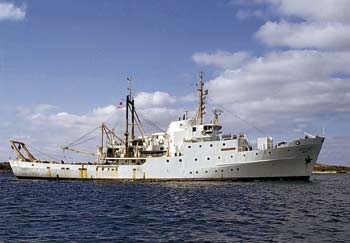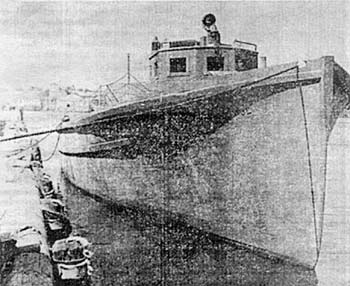Sabotaging Science
by Niaz Dorry
|
Science is touted as the cornerstone of policies designed to ensure the health of the oceans for future generations of fishermen and general public alike.
A recent survey of scientists and managers working for the National Oceanographic and Atmospheric Administrations (NOAA) Fisheries Service, however, suggests science coming out of the Fisheries Service might not be all it’s pumped up to be.
Conducted by the Union of Concerned Scientists (UCS) and released June 28, the survey was completed by 124 of 464 NOAA Fisheries Service employees working in the sustainable fisheries, protected resources and habitat conservation divisions who received the survey. This was UCS’s second in a series of surveys the organization plans to conduct. The first survey was sent to employees of the U.S. Fish & Wildlife Service. Out of the 1,400 scientists and researchers who were sent the survey, 414 responded despite explicit agency orders not to.
What the two surveys reveal should alarm anyone paying attention to ocean issues.
In both instances, the majority of those surveyed felt their agencies are unable to effectively accomplish their missions and scientific opinions are undermined by
|

In the affected area from the Alabama/Mississippi border to the Louisiana/Texas border, 10 - 15,000 boats are affected.” Photo: Scott Labak |
political decision makers higher in their respective agency’s food chains.
Within NOAA Fisheries:
• 69% did not trust NOAA Fisheries decision makers “to make decisions that will protect marine resources and ecosystems.”
|
• 58% knew of “cases where high-level U.S. Department of Commerce administrators or appointees have inappropriately” altered decisions. 55% knew of similar cases involving other federal agencies altering fisheries decisions.
continue
|
|
Rum On The Rocks
by Mike Crowe
|
On the long list of government programs in the all thumbs category, prohibition was pretty much “can’t get there from here” social engineering. It was promoted in many states by religious and women’s groups and supported by factory owners who objected to their employees spending their money on drink. These “dry” groups, which included the Anti Saloon League and the Women’s Christian Temperance Union, got varying amounts of press in several states. From politicians with anti-saloon platforms to fringe characters like Cary Nation, a woman who barged into saloons at the turn of the century and chopped them up with a hatchet, the prohibition movement was frequently a hot topic. The roots of prohibition were in Puritanism, politics and the apparent need of some people to be always telling others how to live.
After a couple of false starts in the 1830’s and 1840’s, a prohibition law was formally established. Neal Dow, “crochety” tannery owner and mayor of Portland, Maine, forced through the divided state legislature, the country’s first such law in 1851. It came to
|
 |
| Capable of hitting 33 miles an hour, the 80 foot runner Maybe operated very successfully in Buzzard’s Bay. She had a draft of four and a half feet and a beam of 16 feet. Fuel capacity was 1,500 gallons. She was built in Southwest Harbor, Maine. Photo printed with permission of National Fisherman |
be known as the Maine Law and was used as a model in other states. Though it was not as rigidly enforced as the National Prohibition Law of 1918 would be, it was influential in building momentum that led to the passage of the 18th Amendment. This little ditty (the 18th Amendment), written and steered through Congress by Representative Andrew Volstead of Minnesota, led to all kinds of unexpected results, at least for the government and the
|
drys. Some of these included an apparent increased interest in alcohol; a few years after 1918 there were twice as many speakeasies in New York as there had been saloons, women were welcomed at the speakeasy where the saloon had been a men’s drinking place, the quality of liquor dropped, the cost of enforcement soared and civil liberties were often trampled.
continue
|
|
|
  
|
|

